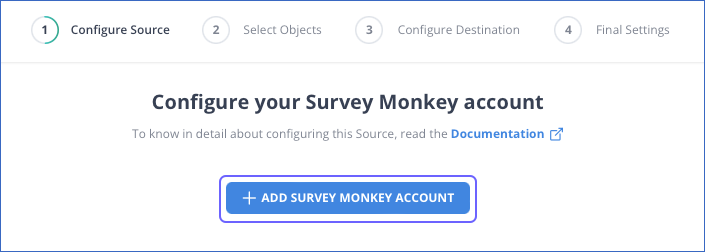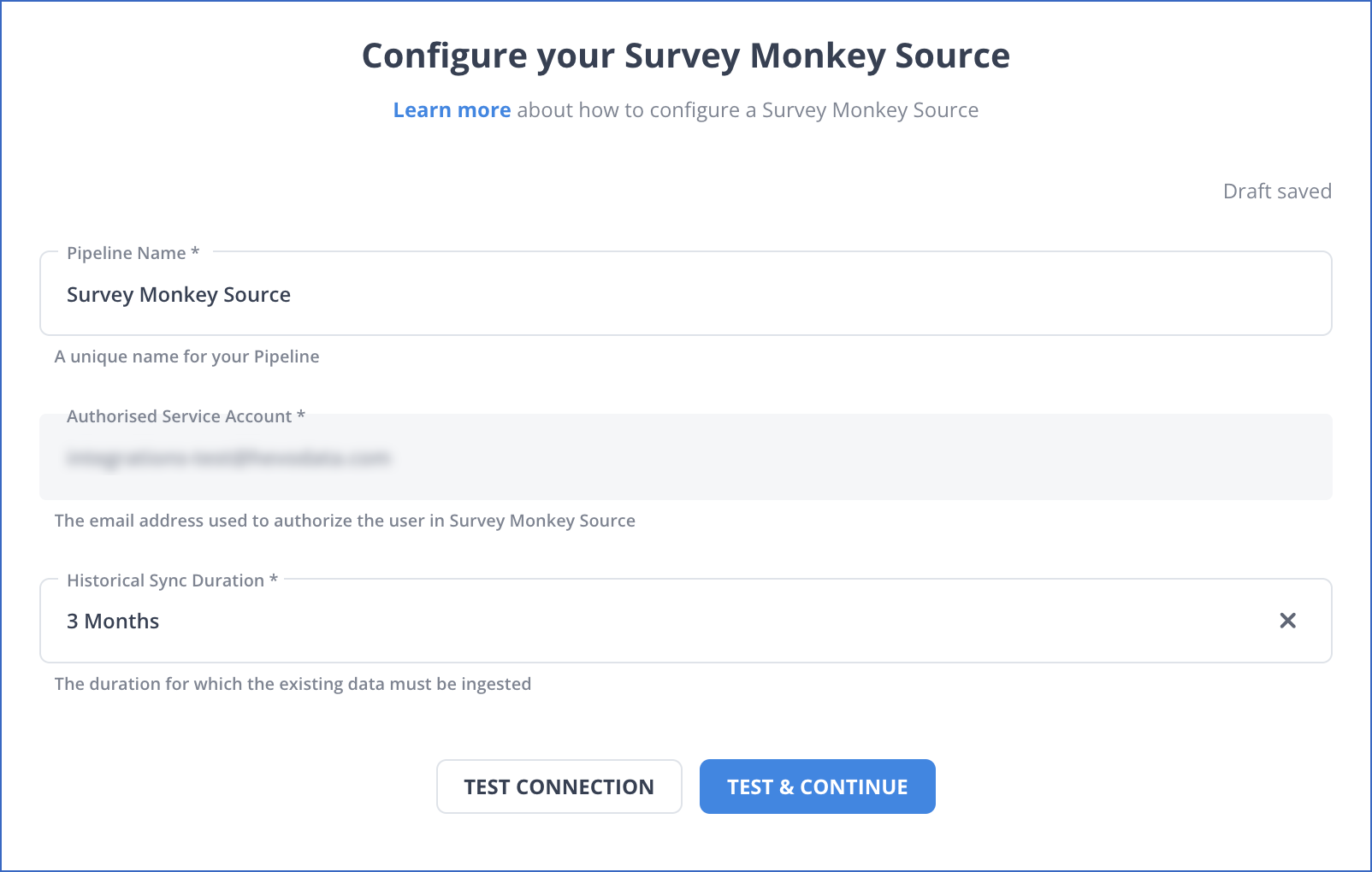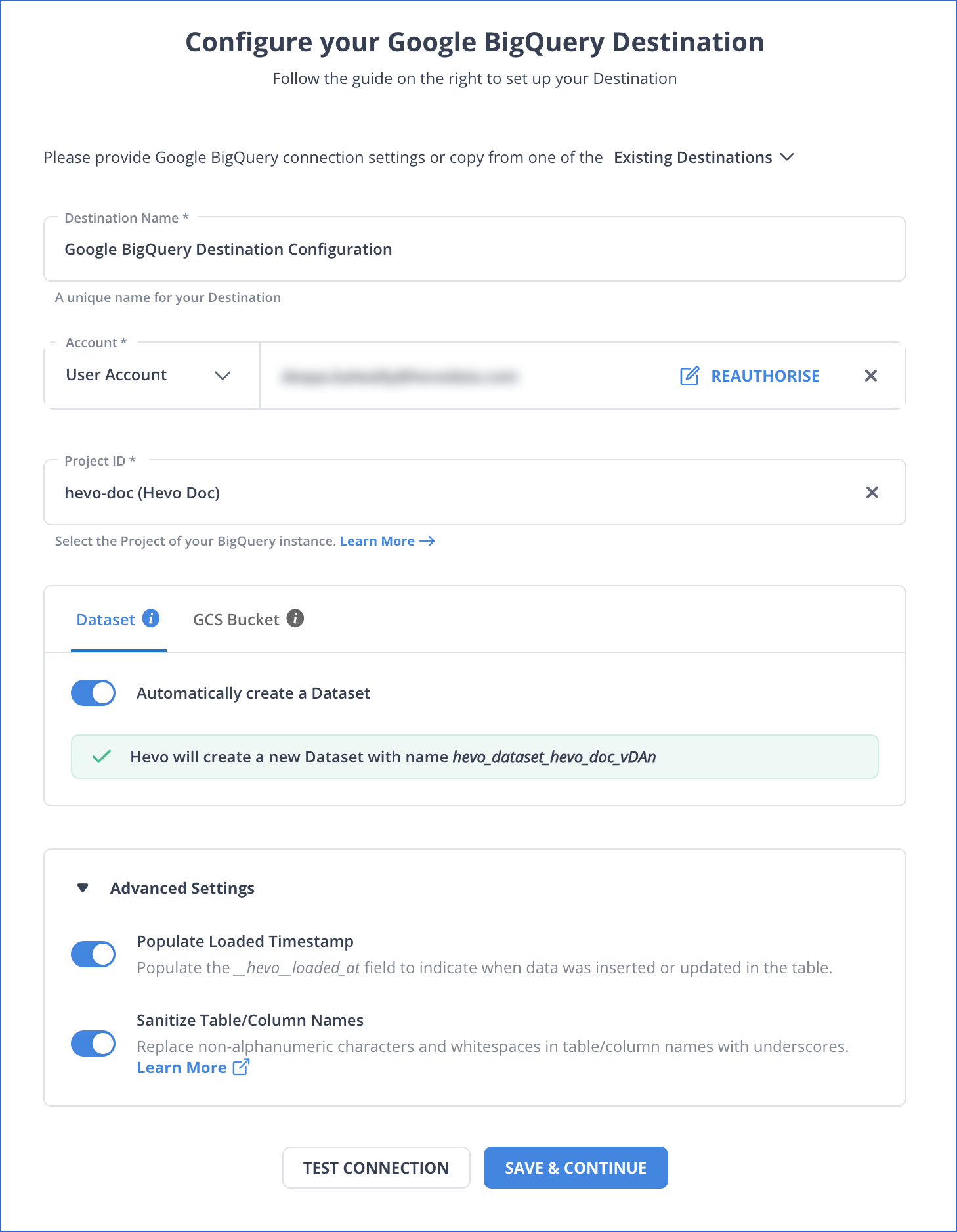Unlock the full potential of your SurveyMonkey data by integrating it seamlessly with BigQuery. With Hevo’s automated pipeline, get data flowing effortlessly—watch our 1-minute demo below to see it in action!
Individual perspectives and experiences can be assessed through surveys. When you conduct surveys, it can provide you with statistics on people’s behaviors and actions which can be utilized to make crucial choices.
SurveyMonkey’s analysis capabilities give adequate analytical data to understand better and make valuable decisions based on your survey replies. However, if you want to go beyond SurveyMonkey’s analysis and unearth further insights, connecting your data from SurveyMonkey to BigQuery is the way to go.
With your SurveyMonkey data optimized with a high-performance Cloud Warehouse like BigQuery, you can write everything from complex ad-hoc queries to basic reports. By combining SurveyMonkey data with information from other sources, you can expand your analytics to aid in the growth of your organization through smarter management choices.
This article will walk you through the steps to connect SurveyMonkey to BigQuery smoothly. It also provides a quick overview of SurveyMonkey and BigQuery before delving into the steps needed for connecting SurveyMonkey to BigQuery. Read along to understand the step-by-step procedure to connect SurveyMonkey to BigQuery.
Table of Contents
Prerequisites
To get the most out of this article, we recommend that you understand the fundamentals of data integration.
What is SurveyMonkey?
SurveyMonkey is an online survey platform that allows users to create, distribute, and analyze surveys easily. It offers customizable templates and tools to gather insights from respondents, making it useful for businesses, researchers, and educators. Users can analyze data through various reporting features to drive decisions based on collected feedback. For more details, you can visit SurveyMonkey’s official site.
Hevo Data, a Fully-managed Data Pipeline platform, can help you automate, simplify & enrich your data replication process in a few clicks. With Hevo’s wide variety of connectors and blazing-fast Data Pipelines, you can extract & load data from 100+ Data Sources straight into your Data Warehouse, such as BigQuery or any Databases.
To further streamline and prepare your data for analysis, you can process and enrich raw granular data using Hevo’s robust & built-in Transformation Layer without writing a single line of code!
GET STARTED WITH HEVO FOR FREEFeatures of SurveyMonkey
- Question Bank: Hundreds of questions written by survey scientists are available in the question bank. You can access the question bank from the sidebar when designing a survey. You may also navigate various categories to find the right question.
- Survey Logic: The several types of survey logic available in SurveyMonkey are:
- Question Logic: This allows you to direct respondents to a specific page or a question on a different page, depending on the feedback users provide to a closed-ended question.
- Advanced Branching: This allows you to skip questions or pages based on a single response and a range of “conditions.” The replies, the survey takers’ custom data, and the custom variables are all examples of these circumstances. If you utilize respondents’ email addresses as a custom data field, you may create a condition that prevents respondents with a specific address from viewing a particular page.
- Question and Answer Piping: This allows you to customize your survey by incorporating responses to previous questions into future question suggestions. This makes respondents feel acknowledged and transforms the survey into a more intimate conversation. Furthermore, contextualizing your survey will allow you to collect more concentrated replies.
- Recurring Surveys: Recurring surveys allow you to distribute the same survey regularly for a certain length of time. You may gain contextual and timely insights into your customers, workers, prospects, and other audience experiences. After that, you can put your best foot forward and take the necessary actions to boost engagement. Recurring surveys are referred to as “longitudinal studies” since they are conducted over a period of time.
What is BigQuery?
Google BigQuery is a fully managed, serverless data warehouse that enables users to run fast SQL queries on large datasets. It provides powerful analytics capabilities and integrates with various data tools and services. BigQuery supports real-time data analysis and offers automatic scaling, making it ideal for businesses looking to derive insights from big data efficiently. For more details, you can visit Google BigQuery’s official site.
Features of BigQuery
BigQuery is a serverless Data Warehouse built for companies with large amounts of data. It offers a wide range of functions in a cost-effective pricing model, from acquiring comprehensive insights from data with built-in Machine Learning to analyzing petabytes of data using ANSI SQL. There are many features given below:
- Multi-Cloud Option: BigQuery’s USP is that it offers an innovative way of analyzing data from several clouds without incurring additional costs. In contrast to past methods, which usually had substantial egress fees for moving data from the source, BigQuery eliminates the need for moving the data. This implies BigQuery can do computations on data right at the storage location.
- Free Access: BigQuery’s Sandbox allows you to try out BigQuery and the Cloud Console without committing to anything.


How to Connect SurveyMonkey to BigQuery?
In this section, you will learn how to migrate SurveyMonkey to BigQuery using the two steps listed below:
Method 1: Manually Exporting Data from SurveyMonkey and Importing into BigQuery
Step 1: Export Data from SurveyMonkey to Excel
- To export your survey results into Excel or CSV format, you must log in to your SurveyMonkey account.
- Now, go to analyze the results tab.
- Click the “Save As” option at the top of the page to save your analyzed results.
- Then, click on the “Export” option, where it will ask you to export different types of data: All Summary Data, Responses Data, and Individual Data.
- You must select one option from All Summary Data, Responses Data, and Individual Data. Then, select a file format from different options like PDF, PPT, XLS, or CSV. After this, you can choose between landscape or portrait orientation. Eventually, you can rename the default file name to your desired file name.
- Click on the “Export” option to download your results. The file downloaded is in zip format, so you have to unzip and export the file to the destination folder.
Step 2: Import Data to BigQuery
- You may create a table from scratch by visiting the Web console > Create Table > Create a Table From.
- You can specify your CSV file, which will be the source for the new table.
- You may choose from various sources, such as Cloud storage, using the “Source” selection.
- In that file format, you can select CSV or Excel.
- You may set the schema by uploading a sample JSON or letting the schema specification “auto-detect.”
- After this, you can click the create table option, which pulls your CSV or Excel file data.
Method 2: Using Hevo to Automate the Process and Integrate SurveyMonkey to BigQuery
Step 1: Configure SurveyMonkey as a Source
Step 1. 1) Click PIPELINES in the Navigation Bar.
Step 1. 2) Click + CREATE PIPELINE in the Pipelines List View.
Step 1. 3) In the Select Source Type page, select SurveyMonkey.

Step 1. 4) In the Configure your SurveyMonkey Source page, specify the following:

Step 2: Configure BigQuery as your Destination
Step 2. 1) Click DESTINATIONS in the Navigation Bar.
Step 2. 2) Click + CREATE DESTINATION in the Destinations List View.
Step 2. 3) On the Add Destination page select Google BigQuery as the Destination type.
Step 2. 4) On the Configure your Google BigQuery Destination page, specify the following details:

With these two simple and easy steps you have now successfully connected your SurveyMonkey account to your BigQuery account and now your are ready for hassle free data transfer.
Limitations of Connecting SurveyMonkey to BigQuery
There are several limitations while connecting SurveyMonkey to BigQuery. Usually, you would be required to load the files individually, which takes a lot of effort and is time-consuming. This is why many businesses explore Qualaroo competitors that offer more seamless integrations and automated data transfer options.
Besides manual integration, you can also use APIs to fetch data from SurveyMonkey and write custom code to feed it into BigQuery. However, this is tedious and would require in-depth expertise.
Conclusion
This blog gives you an overview of SurveyMonkey and BigQuery along with their features and limitations before delving into the steps for connecting SurveyMonkey to BigQuery. Though, the features of SurveyMonkey allow you to gather people’s perceptions in the form of surveys and integrate that data into BigQuery, companies significantly use this data to make valuable decisions. The only limitation of this approach is the manual data integration which is time-consuming and requires a lot of effort.
Hevo Data is a No-code Data Pipeline that can replicate real-time data from 100+ data sources (including 40+ free sources) to a Data Warehouse such as BigQuery or any other destination of your choice. It is a strong, fully automated, and secure solution that does not require coding!
Hevo can effortlessly automate data integration and allows you to focus on other aspects of your business like Analytics, Customer Management, etc.
You can perform on-demand transformations on the Data using Hevo Models and Workflows and prepare it for analysis suitable for your BI tool.
Frequently Asked Questions
1. Can you use SurveyMonkey to collect data?
Yes, you can use SurveyMonkey to collect data.
2. Can you merge SurveyMonkey surveys?
SurveyMonkey does not provide a built-in feature for merging surveys directly.
3. What does SurveyMonkey integrate with?
SurveyMonkey integrates with various platforms, including CRM systems, marketing automation tools, collaboration platforms, and data analysis tools, to enhance its functionality and streamline data management workflows.










